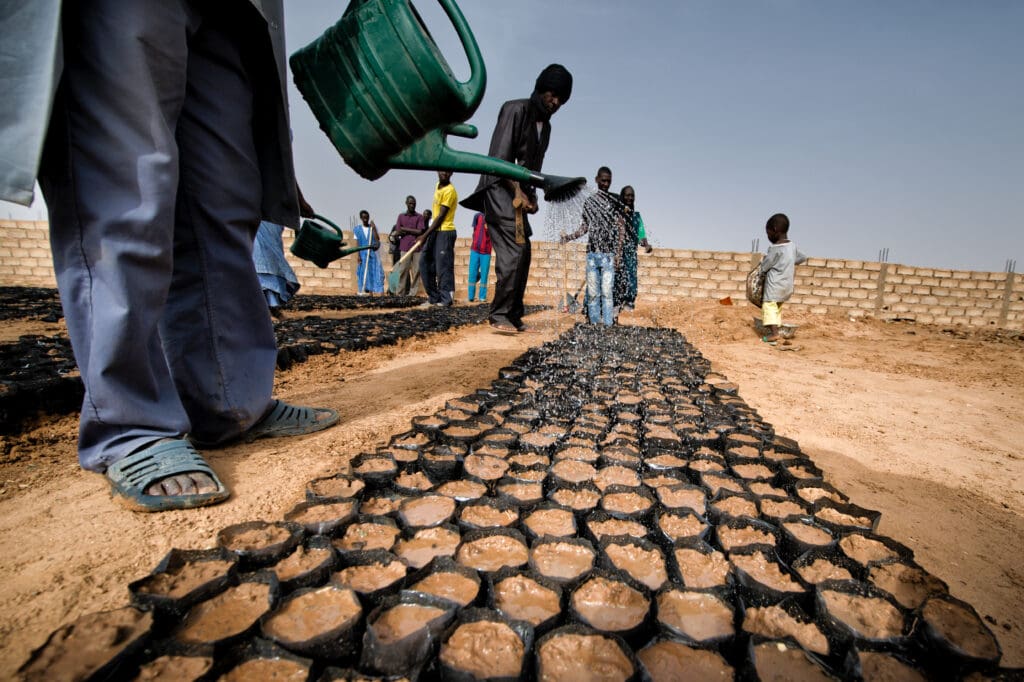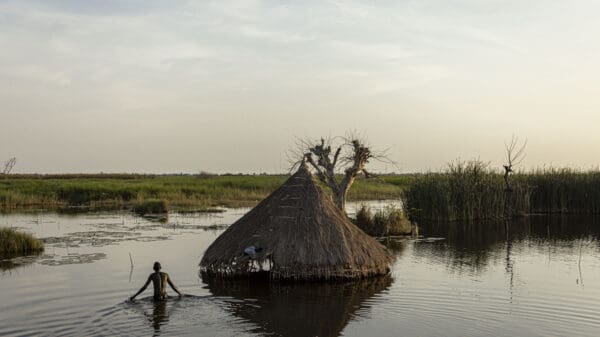Taking Action to Prevent Food Waste and Combat Climate Change

Tonight, nearly 795 million people around the world will go to bed hungry. And, that number could climb even higher in the next few decades. The U.N. Food and Agriculture Organization (FAO) estimates the world will have to increase our food supply by 70 percent to meet the demands of a population expected to reach 9.7 billion by 2050.
At the same time, increasingly erratic and extreme weather caused by a changing climate is making it even harder for farmers to succeed.
To meet this increased demand while still lifting millions of families out of hunger, agriculture and food systems need to adapt. One of the biggest issues related to climate change is food security. We must create a world where people have better access to a safe, plentiful and nutritious food supply and less food is wasted.
If food waste were a country, it would be the third largest emitter of greenhouse gas, according to the FAO. Prevention of food waste helps us combat the adverse effects of climate change and improves food security.
This World Food Day—and every day—our team at Sealed Air shows our passion for ending hunger and mitigating climate change through our work. Since 2006, we have partnered with the World Food Programme and World Food Program USA by not only making monetary donations to support the organization’s mission, but also by using our company’s footprint, product portfolio and customer relationships to make life better for communities in disaster-affected regions.
This is also true in the wider food and packaging industry, where many companies are working together and taking action across the supply chain. Looking at the food chain specifically, there are a few keys areas we need to focus on to make a difference:
Farming and Production
For many developing nations, food waste occurs even before the product reaches the market – largely because of limited access to transportation, poor infrastructure and lack of sufficient storage and refrigeration.
Though food production is indeed increasing, our waste is also growing at the same rate. At Sealed Air, we take addressing food waste seriously. From farm to fork, the global food industry shares this responsibility.
From decreasing the water and energy used in the production process to using technology that can improve the quality of the food delivered, we must work together to reduce food waste and our environmental footprint.
Transportation and Packaging
We know that waste comes in many forms. It’s not just what is bought or consumed, but the waste of the resources used to produce it and deliver it to the dinner table.
Proper food packaging helps reduce food waste, increase food safety, and reduce costs throughout the process, all the way from production to transport and storage and, finally, to the sale and consumption.
At Sealed Air, we help food processors and retailers alike by offering packaging solutions that are creatively designed and produced to protect food and prevent food waste at each of these stages.
Retailers
For retailers, consumers are driving much of the demand for stocked shelves and perfect produce, which contributes to a significant loss of food.
Consumer confusion over date and preparation labels is also a big contributor to food waste. One solution being addressed by policymakers and industry experts is standardizing and clarify food date labeling. Another solution is to add information on packages to inform consumers about preparation, storage directions and ‘sell by’ dates, all of which can limit waste from food expiring or being cooked incorrectly.
Consumers
For developed nations, with robust disease prevention, infrastructure and refrigerated supply chains, the main challenge is what we, as consumers, waste in our daily lives.
Education is a big part of helping consumers recognize the problem and driving behavior that will result in less waste. From improving food storage to buying food more responsibly to eating more freezer-friendly foods and leftovers, there are plenty of methods to make better use of the food we produce.
Responding to the issue
At the end of the day, businesses and consumers need to work together to eliminate food waste. By uniting innovative ideas and diverse expertise, we can discover new approaches that can fight global hunger, preserve our precious resources and redirect the course of climate change for future generations.
Karl Deily is the President of Food Care, Sealed Air Corporation’s food and beverage packing business. Since 2006, Sealed Air—the innovators behind Bubble Wrap® brand cushioning—has been a proud partner of World Food Program USA and WFP.




